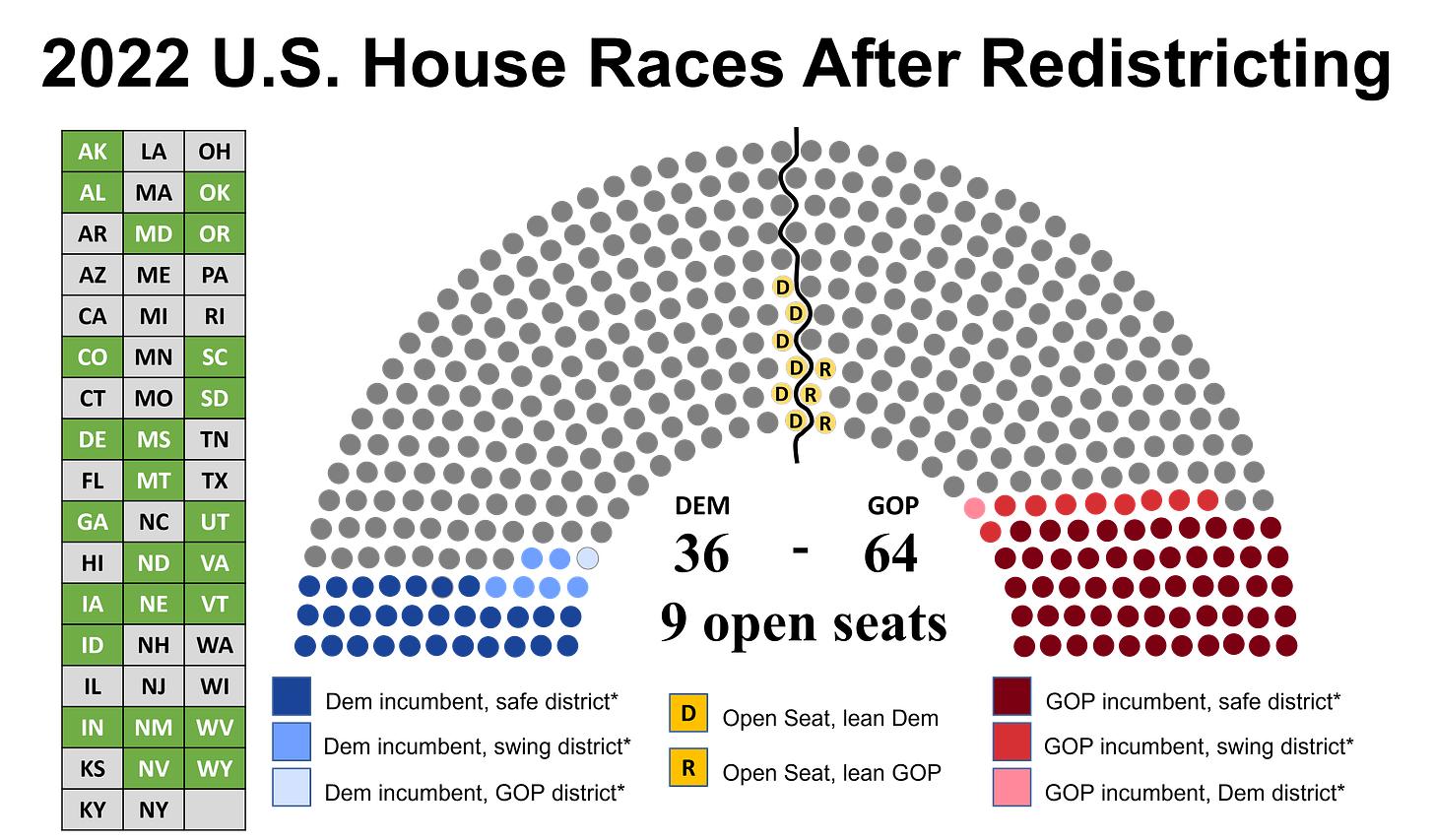Redistricting Recap: The Black Belt
A flurry of lawsuits complicates the redistricting process across the Deep South.
For my redistricting recaps, I’m slowly building an outlook of the upcoming 2022 U.S. House races. Each state will include a link to its respective post as well as a headline count of how many incumbents or open seats the state adds to the chart below. Once I’ve covered all 50 states’ new maps, we’ll have a full House seating chart that displays each party’s outlook in the midterm elections, tallying the number of incumbents as well as both open and competitive seats.

For this recap, instead of delineating the party breakdown of incumbents and their new districts I’ll report on the status of the map as many of these have been challenged in courts across the country.
Mississippi: Complete
Few changes were made to Mississippi’s congressional districts with the most significant change being the expansion of the state’s second district.
Alabama: Taken up by the Supreme Court (Good to go for 2022)
A federal district court struck down Alabama’s new map for racial gerrymandering due to the way it dilutes Black electoral power by packing most of the state’s African American voters into a single district. The state has appealed the decision to the U.S. Supreme Court. The Supreme Court has put a stay on the lower court’s ruling, upholding the map for the 2022 election cycle as the Court hears the case.
Georgia: Four Outstanding Lawsuits, No Actions Yet
Republicans in the Georgia General Assembly originally passed new districts in late November. The Governor then let the districts sit on his desk for a month before finally approving the new map on December 30. Lawsuits were filed immediately and social justice advocates are worried that the Purcell principle will be applied to Georgia’s case(s) as it was in Alabama. No courts have taken action on the map as of Feb 28.
South Carolina: Complete
Republicans are firmly in control of the redistricting process in South Carolina and made almost no changes to districts as their 6-1 congressional majority is already solidly safe.
North Carolina: Supreme Court Appeal on Feb 25
Mapmakers committed to a “race-blind” process where racial data would be excluded from consideration when drawing new districts. Despite this approach, the new map still overwhelmingly favors Republican candidates and allegedly dilutes the voting power of the state’s Black voters. The North Carolina Supreme Court agreed that the new maps violate the state constitution due to partisan gerrymandering and required the legislature to submit new maps within two weeks. After an independent three-judge panel drew new replacement districts in accordance with the law, Republicans appealed the decision to the Supreme Court in hopes that the new map will be overturned.


